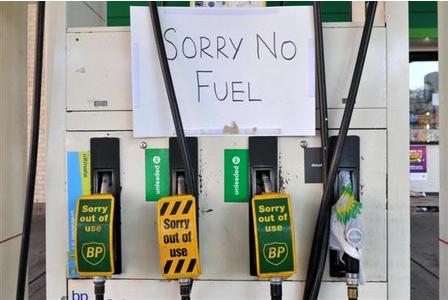A new survey has shown that 57% of Nigerians still buy petrol above the official price of N97 per litre.
This was the result of a recent survey by NOI Polls, which tracked the monthly price of fuel across six geo-political zones from January to March, 2013.
It also said that the disparity is particular in cities outside Lagos and Abuja; with 70 percent of the South-East consumers buy petroleum products from independents, not major marketers.
54 percent of Nigerians attributed the huge disparity in the price to non-monitoring of the filling stations by government agencies.
NOI Polls, which is Nigeria’s leading Opinion Polling and Research Organisation and works in partnership with The Gallup Organisation (USA) to develop opinion research in Nigeria, conducted the survey via telephone interviews across the 36 states in Nigeria including the FCT, with a total of 1,512 phone owning Nigerians aged 18 and above, who use petrol.
The survey asked people a collection of 10 specific questions monthly over the three month period. The first question sought to establish where respondents buy petrol. Respondents were asked: “Where do you mainly buy petrol from?”
Nationwide results indicate that the majority (61percent) mainly buy petrol from major marketer filling stations, followed by 34percent who buy from independent marketer stations. Only five percent mainly purchase their petrol from petrol hawkers.
An analysis of results across geo-political zones highlights some interesting differences. The majority (70 per cent) of respondents in the South-East mainly buy their petrol from independents; this could be representative of the fact that there could be a greater number of independents within the South East. Also, the North-East has the greatest proportion (11per cent) of respondents that mainly buy from petrol hawkers.
The survey report said, “Over the first quarter of 2013, respondents were asked the following question each month: How much do you normally buy petrol? Nationwide results show that over the three months, an average of 57 per cent of respondents bought at more than N97 per litre, while 43 per cent of respondents bought at the official price of N97 per litre. Further analysis along months show that the proportion of respondents that buy at the official price of N97 per litre has increased steadily over the months from 31 per cent (January) to 46 per cent (February) and 51 per cent (March). This can be attributed to the easing of the intense fuel scarcity experienced in most parts of the country towards the end of 2012 and early in 2013. However the overall average of 43 per cent still shows a huge disparity in prices across regions.”
“Subsequently, each month respondents were asked the following question: What do you normally use petrol for? A nationwide average indicate that the majority (34per cent) of Nigerians mainly use the product for their generators, 29 per cent use the product for their cars while 24 per cent use the product for both their cars and generators. A trend analysis (January: 25per cent, February: 37per cent, March: 39per cent) shows a rise in the use of petrol for generators in February and March, indicating a higher use of alternate power supply in this period. Other uses of petrol include for machinery, tricycles etc. Respondents were also asked: What do you think is responsible for the difference in the pump price of petrol across filling stations? The vast majority (54per cent) said the differences occur because the government is not monitoring filling stations. This is followed by 22 per cent who think it is because the cost of importing petrol is not the same for all marketers and 16 per cent who think the filling stations are exploiting the public by hoarding fuel.”
The Federal Government had announced the full withdrawal of fuel subsidy in January 2012 sparked protests across the country’s major cities, following speculations on the impact of this subsidy removal on household spending.
After two weeks of a general strike and negotiations between government and major labour unions, the subsidies were partially restored and the price of petrol increased from N65/litre to N97/litre.

